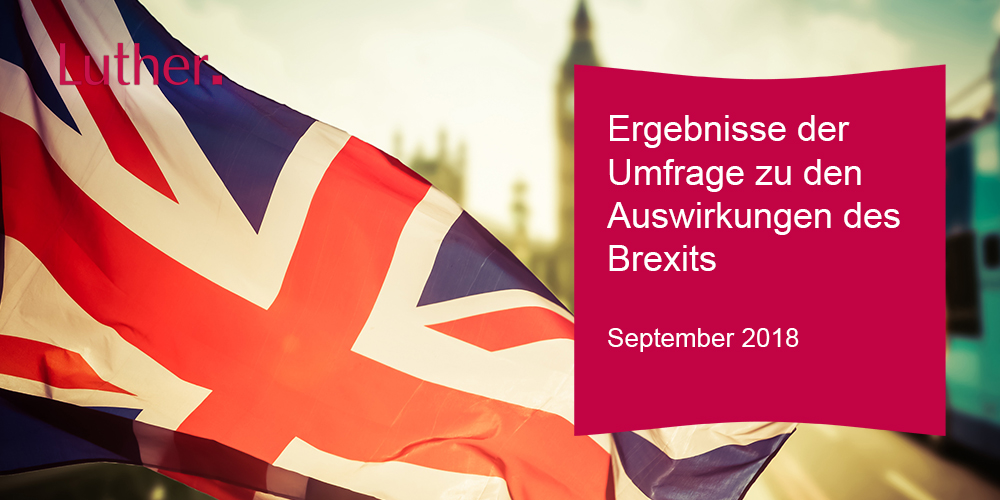04.10.2018
Dangerous Brexit serenity: Companies are hardly prepared
London – How do companies currently deal with Brexit? A survey carried out by Luther Rechtsanwaltsgesellschaft analyses the extent to which companies assess their own involvement as well as the overall economic situation. This reveals a clear discrepancy in the general impact assessment and the perception of one's own situation.
London – How do companies currently deal with Brexit? A survey carried out by Luther Rechtsanwaltsgesellschaft analyses the extent to which companies assess their own involvement as well as the overall economic situation. This reveals a clear discrepancy in the general impact assessment and the perception of one's own situation.
"We're expecting a soft Brexit." says one participant in the survey. "The Brexit will not happen and will be cancelled." says another. These individual statements summarise the current mood of German companies with regard to the United Kingdom's withdrawal from the EU well. Most companies are not aware of the consequences that a hard Brexit might imply. Few, for example, are aware that there is no transitional period in the event of no agreement. SMEs, in particular, hardly take this possible outcome into account in their planning, which could lead to major difficulties in the case of hard Brexit.
This impression is supported by a survey conducted by Luther Rechtsanwaltsgesellschaft from May to August 2018. German companies from a wide variety of industries participated in the survey. 55 percent of these participants have an export relationship and 31 percent an import relationship with the United Kingdom. 15 percent have a branch or a production facility there.
Optimistic and only selectively prepared
The majority of companies expect serious economic problems as a result of Brexit. For example, 69 percent anticipate increasing uncertainty until the economic and political framework conditions are revised. More than half expect the European economic area as a whole to weaken. The greatest difficulties for business relations with partners in the United Kingdom are seen in the effects of customs duties (72 percent), currency fluctuations (50 percent) and the free movement of employees (50 percent).
In contrast to the more abstract, overall economic assessment, there is the preparation and subjective assessment of one's own company. For example, 27 percent of companies do not prepare for Brexit at all, 65 percent only carry out selective analyses. 34 percent of companies have not yet identified their contractual relationships with business partners in the United Kingdom. Only just under a third of companies are concerned about whether products that are only approved within the EU - or products that have been specifically designed in accordance with EU regulations (product compliance) - can still be marketed in the UK after Brexit. Almost two thirds of the companies surveyed have not yet checked their products in this regard. Despite this rather reluctant preparation, the overwhelming majority (82 percent) believes to be rather well prepared.
The risk of customs issues
"The results of the survey are alarming." says York-Alexander von Massenbach, head of the London office of Luther Rechtsanwaltsgesellschaft. "The majority of German companies don't believe in hard Brexit and act like this - that's the serious situation. If it should occur - which is anything but absurd at this stage of the negotiations - many companies are not adequately prepared."
"A hard Brexit would hit medium-sized companies tremendously in their export business." predicts Volker Steimle, head of Service Line Commercial at Luther. "To completely ignore the consequences of a no-deal scenario involves great risks - two-thirds of the companies have not even checked whether they are allowed to sell their products and services in the United Kingdom after Brexit." says Steimle. The handling of customs duties also requires appropriate preparation. After all, 12 percent of German companies expect quite considerable effects with regard to customs clearance. The majority, however, expects the effects to be minor.
Despite the negative effects of Brexit, German companies also expect positive developments. 75 percent of the survey participants assume that the city of Frankfurt will benefit from this. 46 percent expect a strengthening of the financial centre Germany as a whole.
